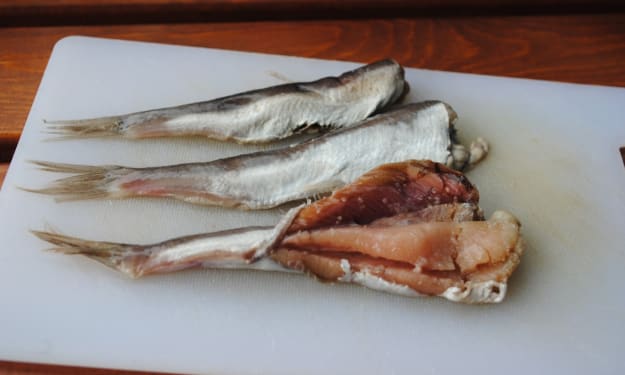Exploring the Effects of Caffeine:
Many Recipes and Taste

Coffee is a staple in many people’s morning routines, and it’s no wonder why. It helps you feel more alert and less tired, and caffeine may boost your brain function, mood, and exercise performance if you like working out in the morning. However, if you’re one of those people who love to start the day with a coffee, you’ve probably asked yourself at least once if it’s better to avoid drinking coffee on an empty stomach. Some say that the bitterness of this drink can make your stomach produce more acid, irritate the organ, or even cause further stomach issues. Some think drinking coffee on an empty stomach is especially bad because there’s no other food that can prevent that acid from causing problems to your stomach life. The truth is that there’s no research that has found any connection between our favorite hot beverage and digestive problems, whether you drink it on an empty stomach or not. However, it's important to pay attention to how your body reacts to coffee and whether you feel better drinking it before or after breakfast.
If you’re a coffee lover, you should also know how to store your coffee. If you keep it in the freezer, you should know that this way, your coffee stays cold but not fresh, whether you have it as grounds or beans. What you want is to keep it away from light, heat, air, and moisture. That’s why an airtight jar might be a good choice, and it’s best to keep that jar in a cabinet away from the stove or direct sunlight.
If you’re a fan of coffee-flavored but you still find the taste too big, you can just put a pinch of salt before adding water to your grinds. The salt contains sodium, which eventually makes your coffee less bitter. It's because sodium prevents the receptors on your tongue from feeling those bitter flavors. Generally, the simplest and fastest way to breathe new life into your favorite beverage is to add a pinch of cinnamon to the coffee grounds before adding water. Of course, you can get even more adventurous and go with nutmeg, cardamom, or cloves.
If you’re a fan of creamers but don’t like those store-bought ones because of added oils, too much sugar, or some other ingredient you might not like, you can make your own. Add a bit of almond or vanilla extract to your cream together with a pinch of your favorite sweetener. If you prefer a rich texture, go with sweetened condensed milk or make yourself a coffee with coconut oil or butter. What a frothy and filling way to start your day, plus it's a good way to maintain your energy levels.
Speaking of the French press, if you want to frost your milk for your coffee but don't have a frother, heat up your milk, pour it into the press, take the lid off, and leave only the whisk. Plunge or whisk the milk for a couple of minutes until it froths.

When you hear “cold brew,” it actually refers to a way of making coffee without using hot water. Instead, you let coffee grounds soak in cold water for at least 12 hours, which creates a very smooth taste. You only need a jar, water, and coarsely ground coffee. After you do it, you'll have a strong coffee concentrate that you can drink as is or add ice water or milk to it. You can heat it up too if you want to drink it hot. So, cold brew coffee isn't just for drinking cold; it's a whole different way of making coffee.
Another helpful tip for coffee lovers is to rinse the coffee pot regularly to keep it clean and prevent any build-up of oils and residue. This will ensure that your coffee always tastes fresh and delicious. In addition, it's important to use fresh, cold water when brewing your coffee to get the best taste possible.
If you're someone who enjoys trying different types of coffee, you might want to consider investing in a coffee grinder. Grinding your own coffee beans ensures that you get the freshest and most flavorful cup of coffee possible. You can experiment with different types of beans and grind sizes to find the perfect cup for you.
Overall, whether you drink your coffee on an empty stomach or not is a personal preference. While some people may experience stomach issues from drinking coffee without food, there is no scientific evidence to support this claim. It's important to listen to your body and pay attention to how it reacts to coffee.
When it comes to storing your coffee, the best approach is to keep it away from light, heat, air, and moisture. Using an airtight jar and keeping it in a cabinet away from direct sunlight is recommended. And if you want to spice up your coffee, there are many simple additions you can try, like a pinch of salt or cinnamon.

In conclusion, coffee is a beloved beverage that many people enjoy on a daily basis. With a few simple tips and tricks, you can make sure that your coffee is always fresh, flavorful, and enjoyable. So go ahead and savor that cup of joe, whether it's first thing in the morning or as an afternoon pick-me-up. And remember, coffee is not just a drink, it's a lifestyle!
About the Creator
Robby Rahadi Putra
Apart from my professional work as auditor, I am also an avid writer and reader. I enjoys writing novels and other creative content in my free time, as well as delving into books to expand my knowledge and understanding of the world.
Enjoyed the story? Support the Creator.
Subscribe for free to receive all their stories in your feed. You could also pledge your support or give them a one-off tip, letting them know you appreciate their work.






Comments
There are no comments for this story
Be the first to respond and start the conversation.